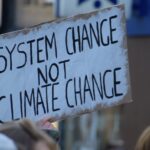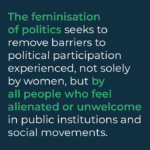Be brave when times are tough
This article originally appeared in the Municipal Journal, where our Chief Executive, Sarah Longlands, writes a regular viewpoint column.
Inflation may have eased, but there are tough times ahead. Sarah Longlands urges local authorities to step outside their comfort zone and reimagine economic growth
Early in my career, I worked as an economic development officer at Barnard Castle, with the objective of marketing the town to visitors in order to support local businesses and jobs. Little did we know at the time that all we needed to put this vibrant historic town back on the map was a certain person’s eye test.





